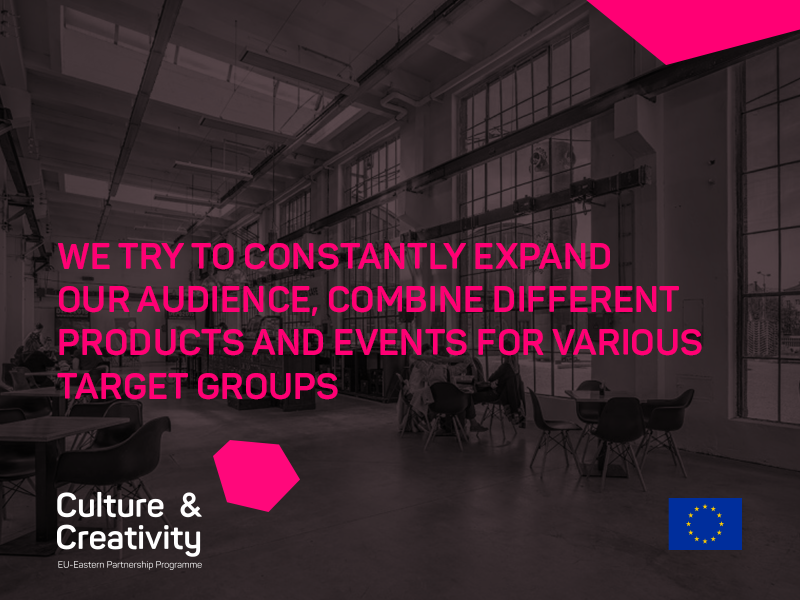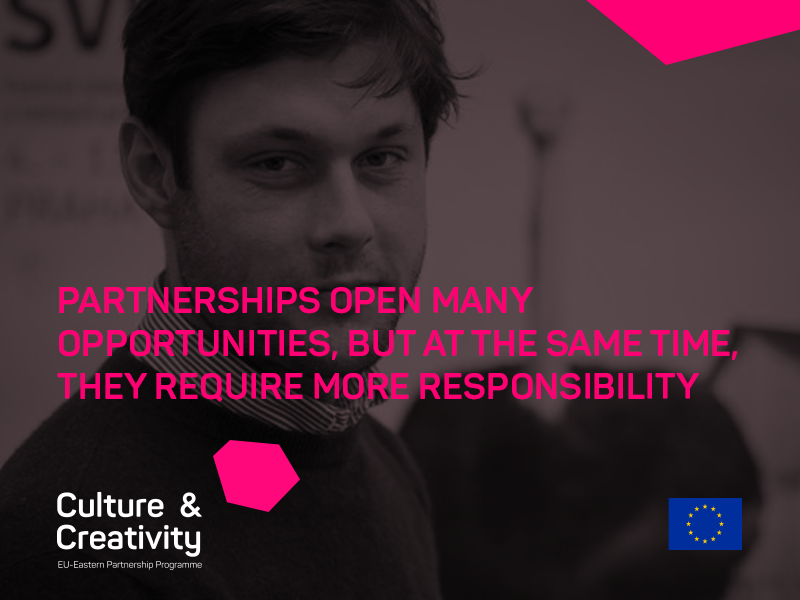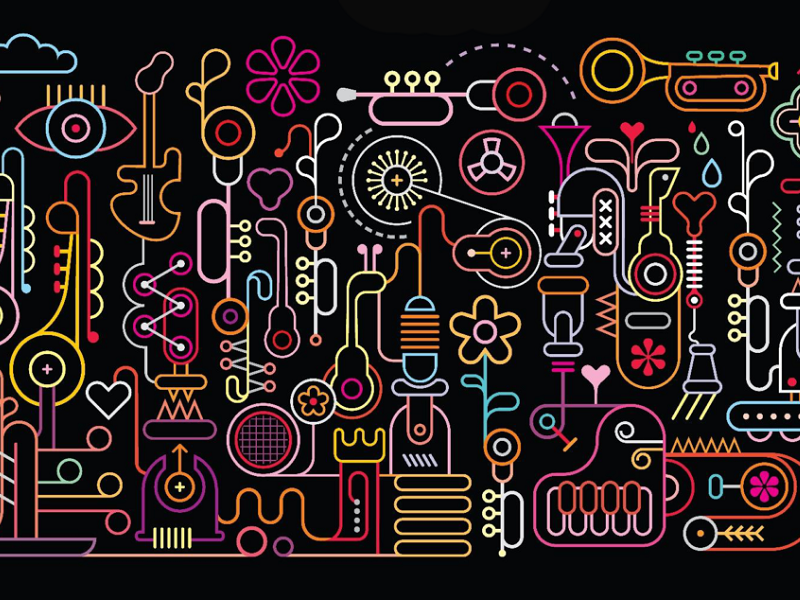
Jiri Sulzenko: “Cooperation Is a Matter of Survival for Cultural Operators”
Jiri, could you tell us a little about DEPO and the history of its founding?
DEPO2015 was founded as a part of a crowdfunding project within the framework of European Capital of Culture 2015. We refer to it as a creative zone or a hub for creative enterprises. We wanted to organise a platform for the presentation of art and design and combine it with workshops on the applied arts. As a result, we achieved a stream of innovative ideas in one place.
Pilsen has a thriving cultural scene, there is a fair number of traditional institutions (theatre, clubs, museums), but we also see great potential in the creative industries. We have a faculty of design, tourism, and industrial design, so we try to keep the creative talents in the town. Thus, the main goal was to create a European platform, support the creative industries in Pilsen and develop them on the national and on the European levels.
What kind of events do you organise at DEPO2015?
Now things are different from what they used to be during the European Capital of Culture. At the time, we had a pretty busy agenda: theatre performances, concerts, exhibitions, seminars and conferences. Now, we are working on creative and interactive exhibitions, introducing designers to the public, holding many local events, like a street food festival. We have also created a community park and held sports events. We collaborate with a variety of festivals, projects, with the local Robotics Centre (for example, we host the festival of drones).
We try to keep life dynamic here—not only through hosting events but also thanks to tenants who work here every day. We run a coworking space here, in addition to the studios that are available for rent.
What were the main challenges you faced when you started the reconstruction of DEPO2015?
The building’s area is 4,500 square metres. Therefore, the operating costs, technical features of the organisation were, of course, a problem. In addition, you’re creating a new concept of a cultural platform, and now it’s not just a theatre, a studio or an educational establishment. We have different lines of work. DEPO2015 does not only work with non-commercial art but also engages in business. We combine them, so to speak.

So, you have created a ‘bridge’ of sorts by combining all these currents?
Yes, precisely. For example, we work with an educational programme for young designers. We introduce them to professionals, mentors, curators and businesses. We try to bring together these two worlds, and this is, in a sense, an innovation. We promote the establishment of relations and connections, which creates great potential that is difficult to maintain though.
What are you doing to expand your audience? It is a serious challenge for many cultural organisations.
We have developed many programmes for family and children. Actually, exhibition audiences are families and children—that is why we maintain contact with schools. We hold regular workshops on various disciplines, such as silkscreen printing and metal work. We try to remain as open as possible, holding events on other platforms, collaborating with festivals, events. In short, we try to constantly expand our audience, combine different products and events for various target groups.
How can culture impact other areas of life—from economic impact to the development of cities and regions?
We have carefully examined the impact of culture, since European Capital of Culture is a large-scale project, and we had to conduct several studies for it.
It is impossible to ignore the growth in tourism: the number of tourists who come here for a few days has grown by 80% compared with last year and by 30% compared with 2013.
Undoubtedly, European Capital of Culture brought concrete economic benefits, but that’s not all. We see that our audience is expanding, its tastes are developing, and we see its willingness to take part in various programmes. The changes are obvious. Culture has begun to occupy people’s free time; it has become a topic of discussion.
In addition, we have given much attention to thorough discussions of the place of tourism in the European context. We had many projects that included debates on the history of tourism and the identity of various populations living here side by side. And this has, in turn, helped us create a local brand, in addition to promoting openness for cooperation and exchange of experience. We see this impact quite distinctly. And, of course, when you show a more diverse culture, this increases demand for cultural products and changes the spirit of the city in general. For example, two or three years ago, you wouldn’t find a single open café in Pilsen. Now there are enough. These are small steps towards change.

Could you tell us about the project idea that you plan to submit to Creative Europe?
We try to work with the creative industries and combine culture, design and innovation with the applied arts. Therefore, we are planning to organise a fair of applied arts and handicrafts—an educational event and exhibition that would introduce the audience to a variety of approaches and tools that exist in the creative industries. We are creating a network of such fairs in the neighbouring countries and are trying to promote it as one of our projects. We also continue to work with educational programmes and want to create an “incubator” for cultural start-ups.
Why are strong partnerships so important for the cultural and creative sector? What are the opportunities they offer for cultural institutions?
Partnerships open many opportunities, but at the same time, they require more responsibility. For us, it’s a matter of survival. Although DEPO2015 is unique for the Czech Republic, it is one of many projects in the European cultural context, that is why it is important for us to learn from peers, exchange experience, join forces and do all of that at international level. Content sharing and joint projects promote and contribute to your work. Although this requires great efforts, cultural operators cannot survive any other way.




